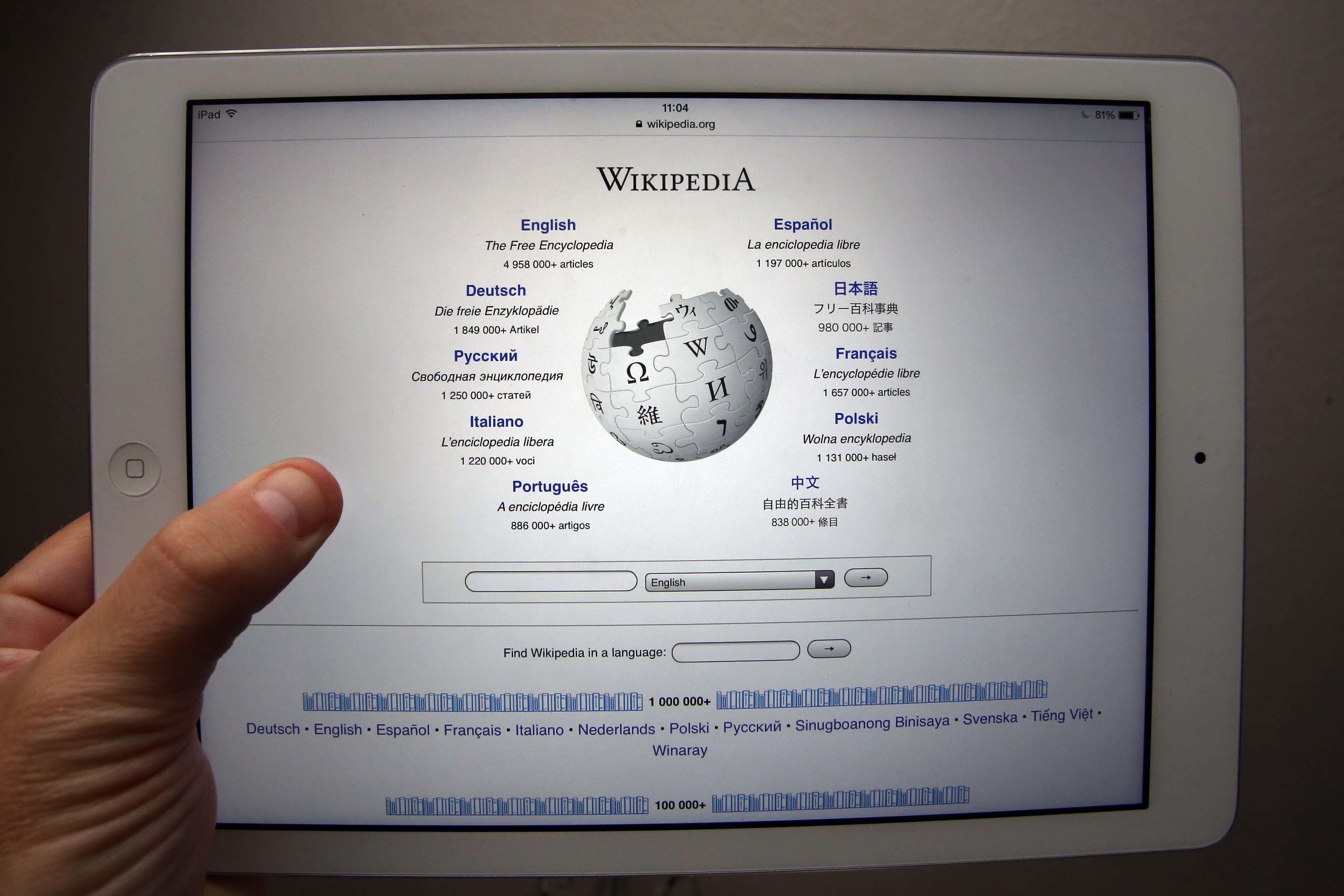Wikipedia could shut down in UK after online safety law passes, Government told
Peers have suggested adding a regulatory exemption for sites which are considered low risk for harm and provide a public good.

Wikipedia could be forced to shut down in the UK due to the regulatory burdens placed on it by a new Bill cracking down on illegal and harmful content online, the Government has been warned.
There are concerns that the Online Safety Bill, which imposes new legal requirements on tech companies, could prove too difficult to meet for certain public interest organisations.
There are also fears that it could lead to “age-gating” – requiring age verification and blocking children’s access – although Wikipedia has said it will not do this.
Peers have suggested adding a regulatory exemption for sites which are considered low risk for harm and provide a public good.
Lord Allan of Hallam, who was Facebook’s director of policy in Europe for 10 years, argued that sites should be exempt from the scope of the Bill if they are for the purpose of public information, present minimal risk of harm, are non-commercial and have limited user-user functions.
The Liberal Democrat peer said: “There is a material risk that, without further amendment or clarification, then Wikipedia and other similar services may feel they can no longer operate in the United Kingdom.”
Tory backbencher Lord Moylan suggested a similar exemption for public good services, as well as the ability for Ofcom to remove an exemption.
He said he found it “remarkable” that the Government has not made changes to the Bill to try and address the problem of overly burdensome regulations on public interests services.
Independent crossbench peer Baroness Kidron: “I am very concerned… I read the headline ‘The Online Safety Bill age-gates Wikipedia’.
“And I can’t see how it doesn’t by virtue of some of the material that can be found on Wikipedia.
“And I think what we’re trying to say is that there are some services that are inherently in a child’s best interests or in a child’s best interests according to their evolving capacity – if we had been allowed to put children’s rights into the Bill.”
However, Lord Parkinson of Whitley Bay, a minister in the Department for Culture, Media and Sport, argued that regulatory burdens will be “proportionate” to the risk of harm of a given site and the capacity of the organisation.
He said: “I am, of course, sympathetic to the arguments that we must avoid imposing disproportionate burdens on regulated services and particularly that the Bill should not inhibit services from providing valuable information which is of benefit to the public.”
However, he said the Bill “has a broad scope in order to capture a range of services, but it has exemptions and categorisations built into it”.
He added: “The requirements for platforms will be proportionate to the risk of harm and as such we do not expect the requirements for Wikipedia to be unduly burdensome.”
The minister added that the Government wants to keep the Bill flexible and future-proof.
He said: “It’s impossible for me to say that a particular service will certainly be categorised in one way or another, because that would give it carte blanche and we don’t know how it may change in the future, estimable though I may think it is at present.”
Bookmark popover
Removed from bookmarks